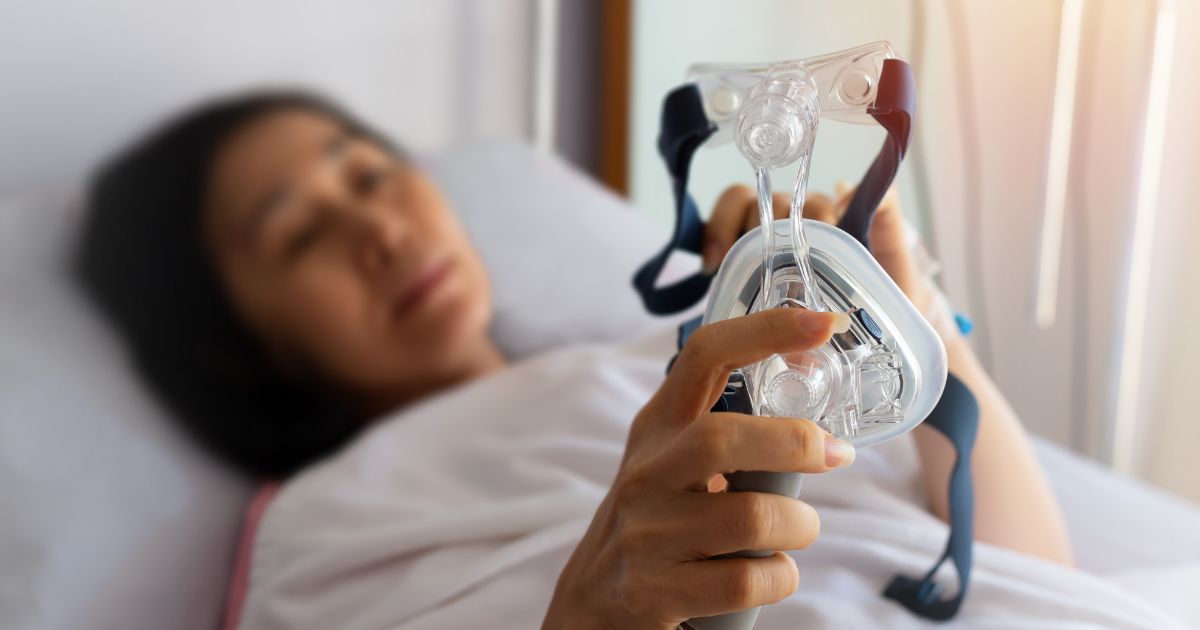Obstructive sleep apnea is common and occurs when the tongue sucks against the back of the throat, blocking an individual’s airflow. When oxygen levels become too low due to the obstruction, the person partially wakes and clears the throat to restore breathing, usually as a gasp for air. The pattern typically repeats multiple times during the night, preventing restful sleep and putting the patient at risk of other severe health conditions.
Snoring, a deviated septum, or polyps within the nasal passage can all lead to obstructive sleep apnea, allergies, congestion, colds, smoking, and other conditions that cause the nasal tissues to swell. In addition to interrupted air flow, other symptoms of obstructive sleep apnea include:
- Chronic loud snoring
- Headaches upon waking
- Fatigue, even after a whole night’s sleep
- Extreme fatigue during the day and falling asleep at inappropriate times
- Narcolepsy
- Concentration and memory problems
- Irritability and anger flare-ups
- Decreased libido
Those who suffer from obstructive sleep apnea are often not aware of it and are usually alerted to the problem by a spouse or partner who witnesses the episodes. If you are experiencing any sleep apnea symptoms, you should consult a doctor for an official diagnosis and available treatment options.
What Treatments Are Available for Obstructive Sleep Apnea?
When obstructive sleep apnea is suspected, patients first undergo a sleep study to evaluate the exact cause and severity of the condition to determine the most effective treatment. Once determined, treatments may include:
- Oral devices: A few options exist to treat mild to moderate cases of obstructive sleep apnea. Worn in the mouth during sleep, one device uses positive pressure to keep the airway open, and another protrudes the lower jaw forward to prevent the tongue from falling back into the airway. Following the sleep study, if the apnea can be treated with oral devices, you will undergo an exam and fitting for the device, which may need adjustments over time.
- Surgery: More severe cases of obstructive sleep apnea may only be treatable through oral surgery. There are several surgical procedures, most of which enlarge the airway by tightening or removing structures in the throat, and others that reposition the jaw or unblock the throat. A newer procedure, laser-assisted uvulopalatoplasty (LAUP), removes the uvula and part of the soft palate at the back of the throat to allow more airflow. A similar surgery can be conducted using electrical current as well.
Surgical treatments are generally performed as out-patient, and recovery can occur at home, though more severe surgeries may require overnight hospitalization. Healing and recovery typically take a few days to a week, with full recovery in a few weeks.
South Jersey Oral Surgeons at Lanzi Burke Oral & Maxillofacial Surgeons Treat Patients Suffering From Obstructive Sleep Apnea
Obstructive sleep apnea is a prevalent but severe condition. If you suffer from obstructive sleep apnea, our South Jersey oral surgeons at Lanzi Burke Oral & Maxillofacial Surgeons can provide several treatment options. Call us today at 856-582-4222 or contact us online to schedule a consultation. Located in Washington Township, Haddonfield, and Woolwich Township, New Jersey, we are dedicated to helping patients throughout South Jersey.


